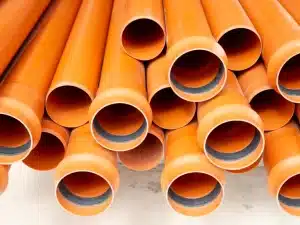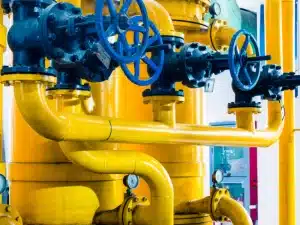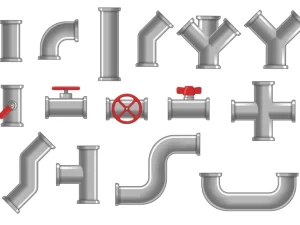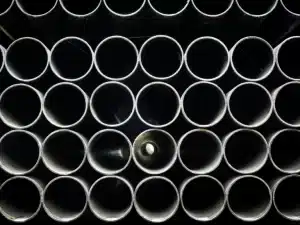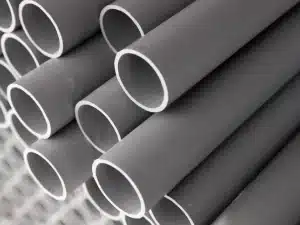Top Applications of Ball Valves in Industrial and Residential Use
Ball valves might not sound exciting, but they’re quietly doing the job of controlling water, gas, and other fluids. You’ll find them in huge factories, oil rigs, and right under your kitchen sink. These simple devices have become go-to solutions because they work well and don’t give people headaches. Let’s look at where these handy valves show up and why so many people choose them over other options.
What Are Ball Valves and Why Are They Important?
Ball valves are in a sphere with a hole drilled through the middle, placed inside a pipe. When you turn the handle, the ball spins. Line up the hole with the pipe, and water flows through. Turn it sideways, and the solid part blocks everything, no flow at all.
What makes these valves so popular? Well, they’re pretty straightforward:
- They seal tightly without much leaking
- They don’t need much fixing and last a long time
- Just a quick turn and they open or close
- They handle high pressure and hot temperatures just fine
This is why ball valve manufacturers stay so busy; everyone from big industries to homeowners wants these reliable little devices.
Industrial Applications of Ball Valves
Big industries love ball valves because they can take a beating while keeping things safe and running smoothly. Here’s where you’ll spot them most often:
Oil and Gas Industry
Working with oil and gas is risky work. One tiny leak can cause huge problems and cost tons of money. Ball valves help control the flow of crude oil, natural gas, and different oil-based products in these harsh places.
These valves have to handle extreme pressure, bad chemicals that eat through metal, and produce extreme heat. Both drilling rigs and oil processing plants depend on them to keep liquids moving safely. That’s why companies only trust ball valve manufacturers who really know their business; there’s no place for cheap copies when people’s safety matters.
Chemical and Petrochemical Plants
When it comes to chemical processing, plants cope with harsh materials that would wreck ordinary valves in no time. Ball valves stand out here; they shrug off severe corrosion and don’t allow leaks, so harmful substances stay contained.
Many facilities go a step further, adding advanced coatings to their ball valves. These custom layers stand up to the most aggressive chemicals, sustaining plant safety and uptime. In environments where a single failure could harm workers or shut down manufacturing, valves engineered to keep running, whatever the situation, are absolutely essential.
Water and Wastewater Treatment
Every time you turn on your tap, you’re benefiting from ball valves working behind the scenes. These valves control clean water flow and manage sewage treatment in cities and towns everywhere.
The best part? If something goes wrong, operators can shut these valves fast, really fast. The brass ball valve manufacturer will make special valves just for water systems because brass doesn’t rust easily and handles moisture well.
Power Generation Industry
Power plants need valves they can trust completely. Whether it’s a nuclear plant or one that burns coal, these facilities use ball valves to control steam, cooling water, and other critical fluids.
When a valve fails at a power plant, it’s not just inconvenient; it can cost millions and put people at risk. That’s why power companies stick with proven ball valve manufacturers who follow strict safety rules.
HVAC Systems
From those large buildings to shopping malls, the heating and cooling systems in buildings are made comfortable by ball valves. These ball valve controls hot and cold water flowing throughout the building’s climate control system.
When maintenance crews need to fix something, they can quickly shut off sections without affecting the whole building. Brass ball valves work great here because they don’t rust and handle temperature changes well. A good brass ball valve manufacturer makes sure these systems run smoothly year after year.
Residential Applications of Ball Valves
Ball valves aren’t just for big industries; they’re probably all over your house right now, quietly doing their job.
Plumbing Systems
Look under your kitchen or bathroom sink, and you’ll likely spot a ball valve. These are the shutoff valves that let you stop water flow when you need to fix a faucet or handle a leak.
Homeowners love them because:
- You can shut off the water quickly in emergencies
- They’re easy to turn (no wrestling with stuck valves)
- They last for years without problems
Most of these household valves come from a trusted brass ball valve manufacturer because brass works well with drinking water and doesn’t corrode easily.
Gas Lines
Ball valves also control gas flow to your stove, water heater, and furnace. Safety is huge here; you want a valve that closes completely and stays closed and open when required.
The nice thing about ball valves is you can tell at a glance if they’re open or closed. Handle pointing the same way as the pipe means gas is flowing. Handle sideways means it’s shut off. No guessing involved.
Irrigation and Outdoor Systems
Got a sprinkler system or pool? Ball valves are probably controlling the water flow. They handle weather changes, UV rays from the sun, and general outdoor abuse better than many other valve types.
Brass ball valves are popular for outdoor use because they don’t rust when they get wet. This has made brass ball valve manufacturer companies important suppliers for lawn and garden equipment.
Heating Systems
Your home’s heating system likely uses ball valves to control hot water flowing through radiators or underfloor heating pipes. These valves help make sure heat gets distributed evenly and efficiently throughout your house.
With good valves, the heating bills stay reasonable and your home stays comfortable all winter long.
Why Ball Valves Beat Other Options
Ball valves aren’t the only game in town, but they have some clear advantages over other types. Compared to gate valves, globe valves, or butterfly valves, ball valves are winners because they:
- It doesn’t require much strength to operate
- Go from fully open to completely closed with just one quarter turn
- Smooth flow when they’re open
- Keep working well even after years of use
These benefits explain why ball valve manufacturers keep coming up with new designs for different jobs, both in big industries and regular homes.
Why Quality Manufacturers Matter
Not all ball valves are produced equally. The quality of the valve will impact the operating system, how safe it is, and how long it lasts. That’s why selecting the right company is so important, whether you are operating a company or fixing up your home.
Good ball valve manufacturers develop their products under strict quality guidelines, using high-quality materials, and thoroughly inspect everything before offering it for sale. There are even companies that are dedicated to producing specific types of valves, like brass ball valve manufacturers who produce valves for specific applications, including home plumbing and irrigation systems.
Brass valves will cost more money at the start than a cheap ball valve, but provide good value. They are rust-resistant, function well, and seal well in water and gas lines.
Wrapping it Up!
Ball valves keep oil moving at refineries, help cities get drinking water, and make it quick to turn off the gas in the kitchen stove. Picking the right ball valve goes beyond just completing a task; it means safety, top efficiency, and the quiet comfort of knowing that the system will spring to action when it counts. It’s why people trust reputable ball valve manufacturers, or a brass ball valve manufacturer, with a variety of needs. From big industrial plants to everyday home fixes, ball valves are the dependable choice, and they’ll stay that way for years to come.

